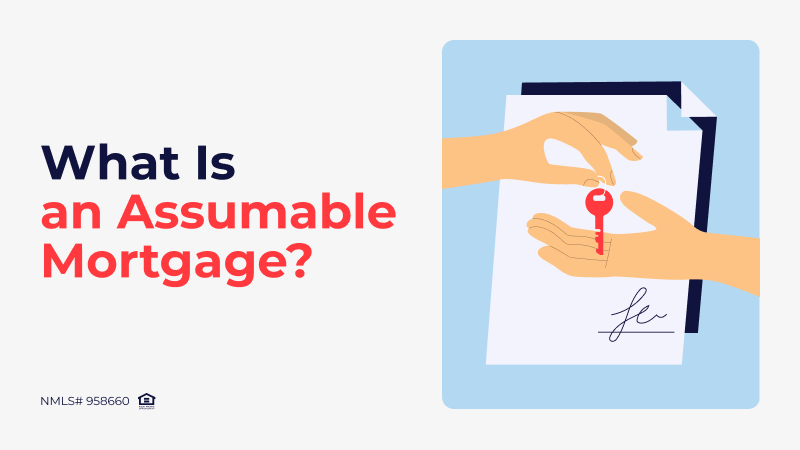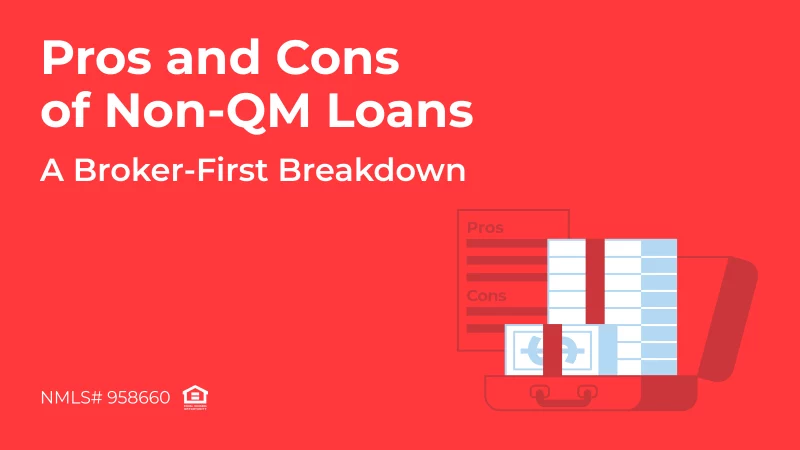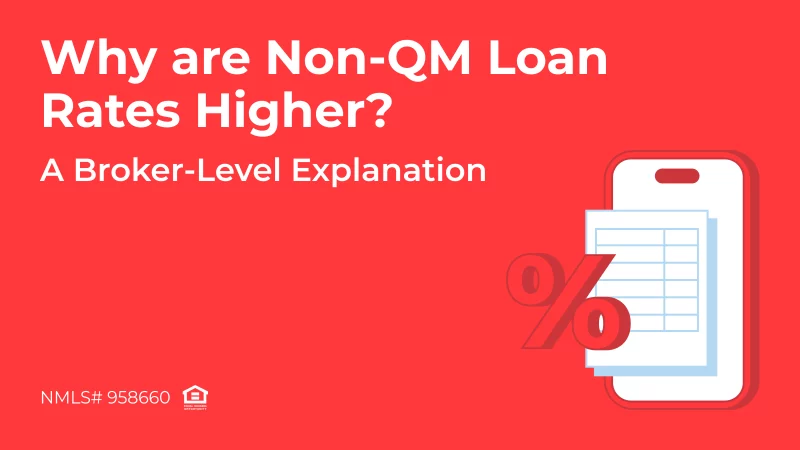
In real estate, understanding the various financing options available can significantly impact the buying and selling process. One such option, often overlooked but highly beneficial in certain circumstances, is the assumable mortgage. In this article, we will see what an assumable mortgage is, how it works, its benefits and limitations, and whether it could be the right choice for you.
What Is an Assumable Mortgage?
Get the ADvantage
with our loyalty program
Earn and redeem points for valuable benefits for you and your clients
Unlock RewardsAn assumable mortgage is a type of home loan that allows the buyer to take over the seller’s existing mortgage, including its interest rate, repayment period, and terms. This transfer of mortgage responsibility can be a strategic move in a fluctuating interest rate environment. Unlike traditional mortgages, where the buyer must secure a new loan, assumable mortgages can provide significant advantages, particularly when interest rates have risen since the original loan was taken out.
How Does an Assumable Mortgage Work?
The process of assuming a mortgage involves several key steps:
- Initial Agreement. The buyer and seller agree that the buyer will assume the existing mortgage.
- Lender Approval. The mortgage lender must approve the mortgage assumption, ensuring that the buyer meets their credit and financial requirements.
- Legal and Financial Responsibilities. Once approved, the buyer takes over the monthly payments and other obligations associated with the mortgage. The seller is typically released from liability, though this can vary based on lender policies.
Both parties should be aware of their responsibilities during this process. The seller must provide all necessary mortgage details and facilitate communication with the lender. The buyer must be prepared to undergo a thorough credit and financial review by the lender.
Types of Assumable Mortgages
When considering assumable mortgages, it’s essential to understand the different types available and their specific requirements, benefits, and limitations. Here, we will explore the four primary types of assumable mortgages: FHA, VA, USDA, and the rare conventional loans that include assumable clauses.
FHA Assumable Mortgages
Federal Housing Administration (FHA) loans are known for being more accessible to borrowers due to their lenient credit requirements and low down payments. These characteristics also extend to their assumable mortgages.
Requirements for Assuming an FHA Loan. To assume an FHA mortgage, the buyer must meet the FHA’s creditworthiness criteria, which typically means having a decent credit score, a reliable income source, and a manageable debt-to-income ratio. The buyer must also demonstrate that they can cover the difference between the property’s sale price and the outstanding mortgage balance, often requiring a substantial down payment.
Benefits and Limitations. The primary benefit of assuming an FHA mortgage is the potential for lower interest rates compared to current market rates. Additionally, FHA loans are generally easier to qualify for than conventional loans, making them an attractive option for buyers with lower credit scores. Another advantage is the potential cost savings, as assumable FHA loans can reduce closing costs compared to taking out a new mortgage.
However, there are limitations. The property must meet specific FHA standards, which can involve additional inspections and appraisals. Moreover, if the loan’s balance is significantly lower than the property’s current value, the buyer might need a considerable down payment or secondary financing.
VA Assumable Mortgages
The Department of Veterans Affairs (VA) offers loans to service members, veterans, and eligible surviving spouses, providing them with numerous benefits, including assumability.
Eligibility Criteria for Assuming a VA Loan. Both veterans and non-veterans can assume a VA loan, but the process involves the lender’s approval. The buyer must meet the lender’s credit and financial standards. Importantly, the veteran seller can regain their full VA loan entitlement only if the buyer is also a veteran who substitutes their entitlement.
Benefits for Veterans and Non-Veterans. VA assumable mortgages come with several advantages. They often have favorable interest rates, no requirement for private mortgage insurance (PMI), and flexible qualifying terms. For veterans, assuming a VA loan can be a seamless process, and non-veterans can also benefit from the same favorable terms, making homeownership more accessible.
One limitation is the VA funding fee, a one-time charge that varies based on the loan amount and the buyer’s military service status. Additionally, like other loans, buyers must be prepared to cover any gap between the mortgage balance and the home’s sale price.
USDA Assumable Mortgages
The U.S. Department of Agriculture (USDA) offers loans aimed at promoting homeownership in rural areas, and these loans can also be assumable under certain conditions.
Requirements for Assuming a USDA Loan. To assume a USDA loan, the buyer must meet the USDA’s credit and income eligibility standards, which are designed to assist low-to-moderate-income families. The property must be located in a USDA-designated rural area.
Benefits and Limitations. USDA loans typically come with no down payment requirements, competitive interest rates, and lower monthly mortgage insurance premiums. These benefits can make assuming a USDA mortgage an attractive option for eligible buyers.
However, the geographical limitation to rural areas can be a drawback, as not all properties qualify. Additionally, there are income limits that may exclude higher-earning buyers from eligibility.
Conventional Loans
Conventional loans, unlike government-backed loans, are not typically assumable. This means that most conventional mortgage agreements include a “due-on-sale” clause, which requires the loan to be paid in full upon the sale of the property, preventing assumption by a new buyer.
Exceptions Where Assumable Clauses May Exist. Despite the general rule, there are some exceptions. Older conventional loans or those with specific assumable clauses may allow for assumption under certain conditions. These are rare and usually require careful negotiation and lender approval.
In summary, while FHA, VA, and USDA loans offer pathways for mortgage assumption, conventional loans generally do not. Understanding the specific requirements, benefits, and limitations of each type of assumable mortgage is crucial for making informed decisions in the home buying and selling process.
Pros and Cons of Assumable Mortgages
Understanding the pros and cons of assumable mortgages can help buyers and sellers make informed decisions and determine if this financing option aligns with their financial goals and circumstances.
Pros
Potential for Lower Interest Rates. One of the primary benefits of assumable mortgages is the ability for buyers to take over an existing loan with a lower interest rate than the current market rates. This can lead to significant savings over the life of the loan, especially if interest rates have increased since the original loan was taken out.
Easier Home Sale Process for Sellers. Sellers can make their property more appealing by offering an assumable mortgage. The attractiveness of a lower interest rate can entice more buyers, potentially speeding up the sale process and providing a competitive edge in a crowded market. This can be particularly beneficial in a high-interest-rate environment.
Potential Savings on Closing Costs. When a buyer assumes an existing mortgage, they may save on some of the costs typically associated with securing a new loan. This includes appraisal fees, loan origination fees, and other closing costs. These savings can make the transaction more affordable for the buyer and facilitate a smoother sale.
Cons
Limited Availability. Assumable mortgages are not widely available, especially among conventional loans. Most conventional mortgages include a “due-on-sale” clause that prevents loan assumption. As a result, buyers and sellers may find fewer opportunities to benefit from assumable mortgages, limiting their options.
Need for Substantial Down Payment or Second Mortgage. Buyers assuming a mortgage often need to cover the difference between the home’s sale price and the remaining mortgage balance. This may require a substantial down payment or securing a second mortgage, which can be a financial burden for some buyers.
Risk for Sellers if the Buyer Defaults. Depending on the lender’s policies, sellers might remain liable if the buyer defaults on the assumed mortgage. This risk can be mitigated if the mortgage lender releases the seller from liability, but this is not always guaranteed. Sellers need to carefully consider this potential risk when agreeing to an assumable mortgage.
How to Qualify for an Assumable Mortgage

Struggling with
a loan scenario?
Get a solution in 30 minutes! Fill out
the short form and get your personal offer
To qualify for an assumable mortgage, buyers must meet several specific criteria that ensure they are financially capable of taking over the existing loan. These criteria include:
- Credit Score. A good credit score is essential for qualifying for an assumable mortgage. While the exact score required can vary by lender and loan type, generally, a score in the higher ranges will improve the chances of approval. FHA and VA loans may have more lenient credit requirements compared to conventional loans.
- Debt-to-Income Ratio (DTI). Lenders will closely examine the buyer’s debt-to-income ratio to assess their ability to manage the assumed mortgage along with any existing debts. A lower DTI ratio indicates a higher likelihood of the buyer being able to meet monthly mortgage payments. Typically, lenders prefer a DTI ratio below 43%, but specific requirements can vary.
- Other Criteria. In addition to credit score and DTI, lenders will evaluate other financial factors. This includes the buyer’s employment history to ensure stable and reliable income. Asset verification is also important, as lenders want to see that the buyer has sufficient savings or liquid assets to cover the down payment and any potential financial emergencies. Other factors like payment history on previous debts and overall financial health will also be considered.
Costs Associated with Assumable Mortgage
Assuming a mortgage involves various costs that buyers need to be prepared for:
- Assumption Fees. Lenders charge assumption fees to process the mortgage assumption. These fees can vary depending on the lender and the type of loan but typically range from a few hundred to a few thousand dollars.
- Closing Costs. Although assuming a mortgage can lead to savings on certain costs compared to taking out a new loan, some closing costs still apply. These can include fees for title searches, recording fees, and other administrative expenses.
- Specific Fees. For VA loans, buyers must pay a VA funding fee, which is a percentage of the loan amount. This fee varies based on factors such as the type of loan, the buyer’s military service status, and whether it is the buyer’s first VA loan. Similarly, other loans may have unique fees that buyers must pay, such as FHA mortgage insurance premiums or USDA guarantee fees.
Being aware of these costs helps buyers plan their finances effectively and ensures they are fully prepared for the financial responsibilities of assuming a mortgage.
Assumable Mortgage After Divorce or Death
In cases of divorce or the death of a homeowner, assuming a mortgage can involve a different process. A surviving spouse or another family member may have the option to assume the mortgage, but this is subject to the lender’s approval and the original loan agreement’s terms. The lender will typically evaluate the financial stability and creditworthiness of the person assuming the mortgage to ensure they can manage the payments. This process includes providing proof of income, a good credit history, and possibly other financial documentation. Each lender’s policies and the specific terms of the loan will determine the exact requirements and steps needed for the assumption. This can provide a way for family members to retain the home during challenging times without needing to secure a new mortgage.
Tips for Successfully Assuming a Mortgage
- Start Early. Begin the assumption process as soon as possible to account for potential delays.
- Gather Documentation. Ensure all necessary financial documents are readily available.
- Consult Professionals. Work with mortgage experts and real estate agents to navigate the process smoothly.
- Understand the Terms. Thoroughly review and understand the terms of the assumed mortgage to avoid surprises.
Conclusion
Assumable mortgages can offer significant advantages, particularly in a high-interest-rate environment. By understanding the types, benefits, limitations, and processes involved, homebuyers and sellers can make informed decisions about whether this option suits their needs. Consulting with mortgage professionals can provide personalized guidance and ensure a smooth assumption process. Assumable mortgages may not be common, but when available, they present a unique opportunity for both buyers and sellers in the real estate market.


